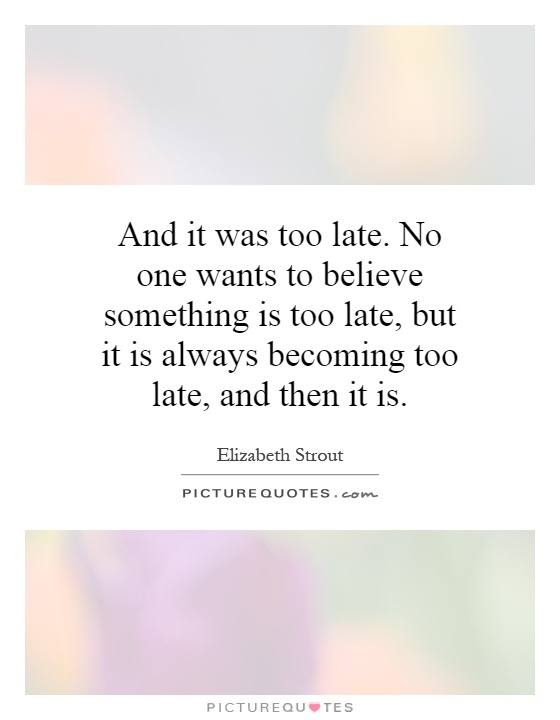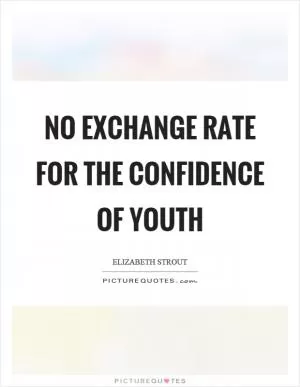And it was too late. No one wants to believe something is too late, but it is always becoming too late, and then it is

And it was too late. No one wants to believe something is too late, but it is always becoming too late, and then it is
Elizabeth Strout is a master of capturing the complexities of human emotions and relationships in her writing. In her novel "Olive Kitteridge," she explores the theme of missed opportunities and the inevitability of time passing. The quote "And it was too late. No one wants to believe something is too late, but it is always becoming too late, and then it is" perfectly encapsulates the sense of regret and resignation that permeates the lives of her characters.Throughout the novel, we see characters grappling with the consequences of their choices and the passage of time. Olive Kitteridge herself is a prime example of someone who is haunted by the ghosts of her past and the opportunities she let slip away. As she reflects on her life, she realizes that certain moments have passed her by, and there is no way to turn back the clock.
The quote also speaks to the universal experience of realizing that time is fleeting and that we cannot always control the outcome of our actions. In the novel, characters are forced to confront the reality that some things are beyond their control, and that they must learn to accept the consequences of their decisions.
Strout's writing is poignant and evocative, and she has a unique ability to capture the bittersweet nature of life. Her characters are flawed and complex, but ultimately relatable in their struggles with regret and missed opportunities. The quote "And it was too late" serves as a stark reminder that time waits for no one, and that we must learn to make the most of the moments we are given.












 Friendship Quotes
Friendship Quotes Love Quotes
Love Quotes Life Quotes
Life Quotes Funny Quotes
Funny Quotes Motivational Quotes
Motivational Quotes Inspirational Quotes
Inspirational Quotes